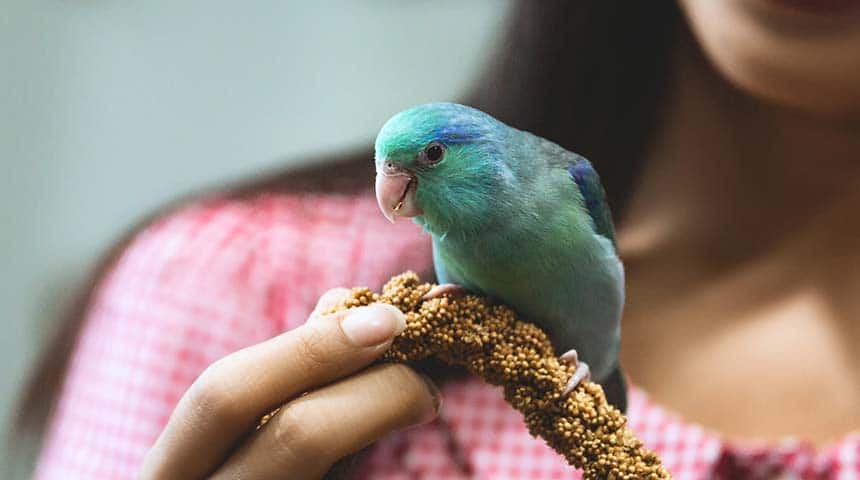
A bird suffers from chronic egg laying when it lays more than 2-3 times a year or when it lays more than 5-6 eggs per clutch. This is a potentially harmful condition for your pet since egg-laying is a process that requires a high calcium intake. Most of the time, the bird's calcium requirements exceed its capacity to consume it and a deficiency occurs. This deficiency prevents the bird from producing a normal shell, making it impossible for the egg to be expelled. Even if the egg is well formed, the lack of calcium can also prevent the bird from expelling it properly. In addition, because the egg occupies a large part of the space in the bird's belly for an abnormally long period of time, the result will be a compression of the respiratory system, making it difficult to breathe. The egg can also compress the nerves in the pelvis, causing paralysis of the legs. When egg retention occurs, the bird's general condition is affected: it remains at the bottom of the cage with ruffled feathers and no longer interacts with you.
Egg retention is also associated with serious consequences. The egg can break in the bird's belly and cause a painful irritation called yolk coelomite. This condition can also lead to cloacal prolapse (a cloaca that has completely protruded from the bird's body) as a result of continuous efforts to expel the egg. These are all medical emergencies and can lead to the bird's death. In short, chronic egg laying is a condition that must be treated as soon as possible.
Causes
Chronic egg laying can be caused by an ovarian cyst, frequently found in parakeets, cockatiels and canaries. It is therefore important to perform a proper examination of the bird to exclude a medical cause. Most cases of chronic egg-laying are caused by various environmental factors that must imperatively be corrected:
- Stop stroking your bird on its lower back, lower belly and beak, as those are erogenous zones. Stop giving kisses to your bird.
- If your bird rubs on you while looking mentally absent, it is probably masturbating. Move around or put it down in its playpen to stop this behaviour.
- Remove mirrors (which can be seen as a companion), nests, tents, plush toys or any other object that they are particularly fond of.
- Make sure your bird gets 10 to 12 hours of sleep a day (in complete darkness and silence!). Extended periods of light increase the production of sex hormones and promote chronic egg laying.
- Reduce the intake of calorie-rich foods in your bird's diet. Stop feeding your bird the fattier foods.
It is best to add a cuttlebone or mineral block (Hagen brand) to your bird's cage when it suffers from chronic egg laying. This will increase its calcium intake and reduce the risk of egg retention. You can also crush a Tums tablet into a powder on your bird's wet food.
Treatment
The first step is to chemically sterilize your bird by administering Lupron by injection. This medication is intended to slow down the activity of the bird's reproductive system. It is essential to make environmental corrections at the same time in order to prevent new egg-laying, as Lupron is only effective for 2 to 4 weeks. If this first treatment does not work, i.e. if the bird lays again, it will be necessary to repeat the Lupron injection. Some birds require a few more injections, while others will require a lifetime treatment. In these cases, it is important to try to give the injections as far apart as possible, to find the frequency that minimizes costs and handling of the bird, while preventing repeated layings.
When no medical cause is involved, your bird will remain predisposed to compulsive laying for the rest of its life. You must therefore be careful in your handling and be on the lookout for overlaying. It is recommended that you keep a journal for your bird, in which you record the date of all its layings, the number of eggs laid each time and the interval between each egg expulsion. It will be easier to keep track of your bird's laying in this way.

